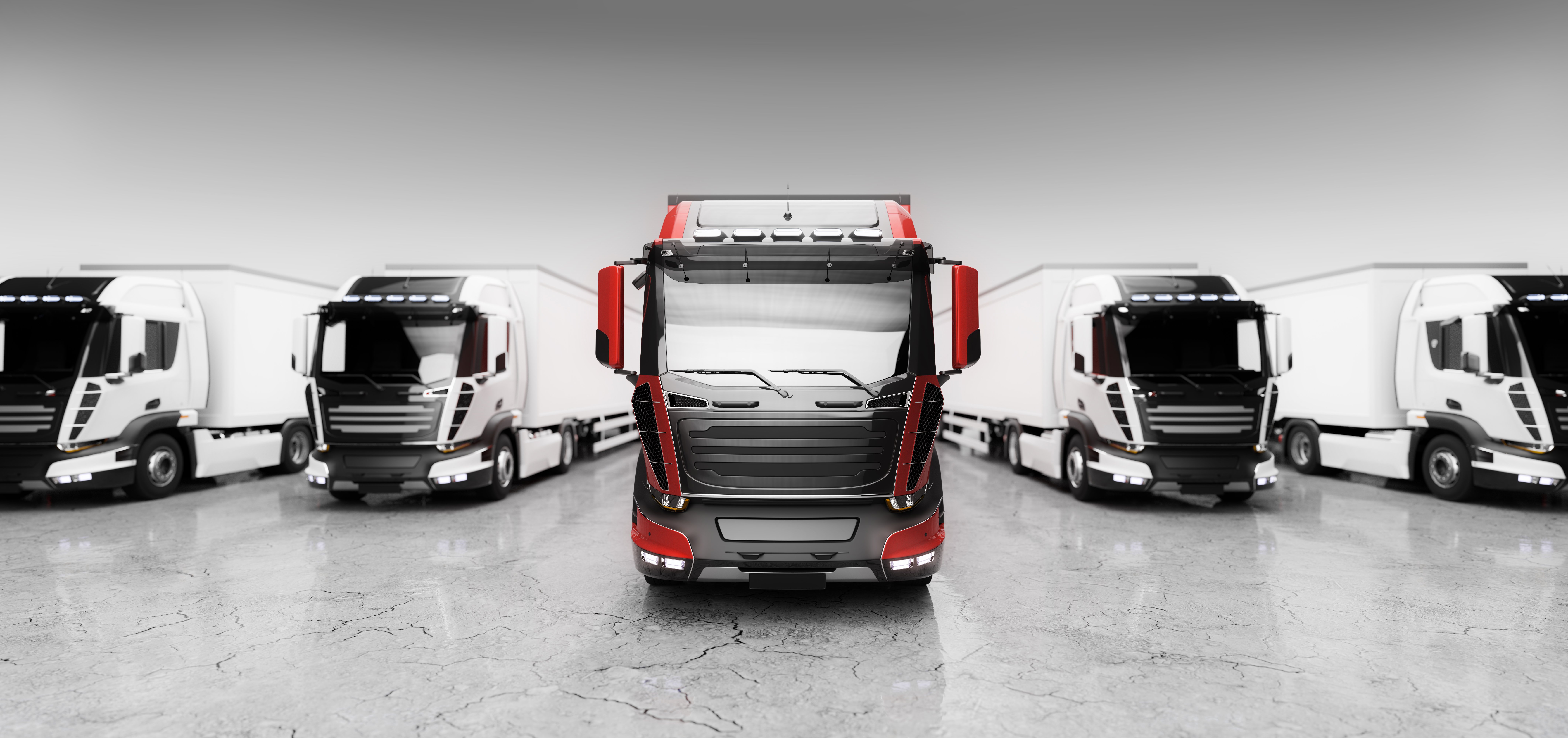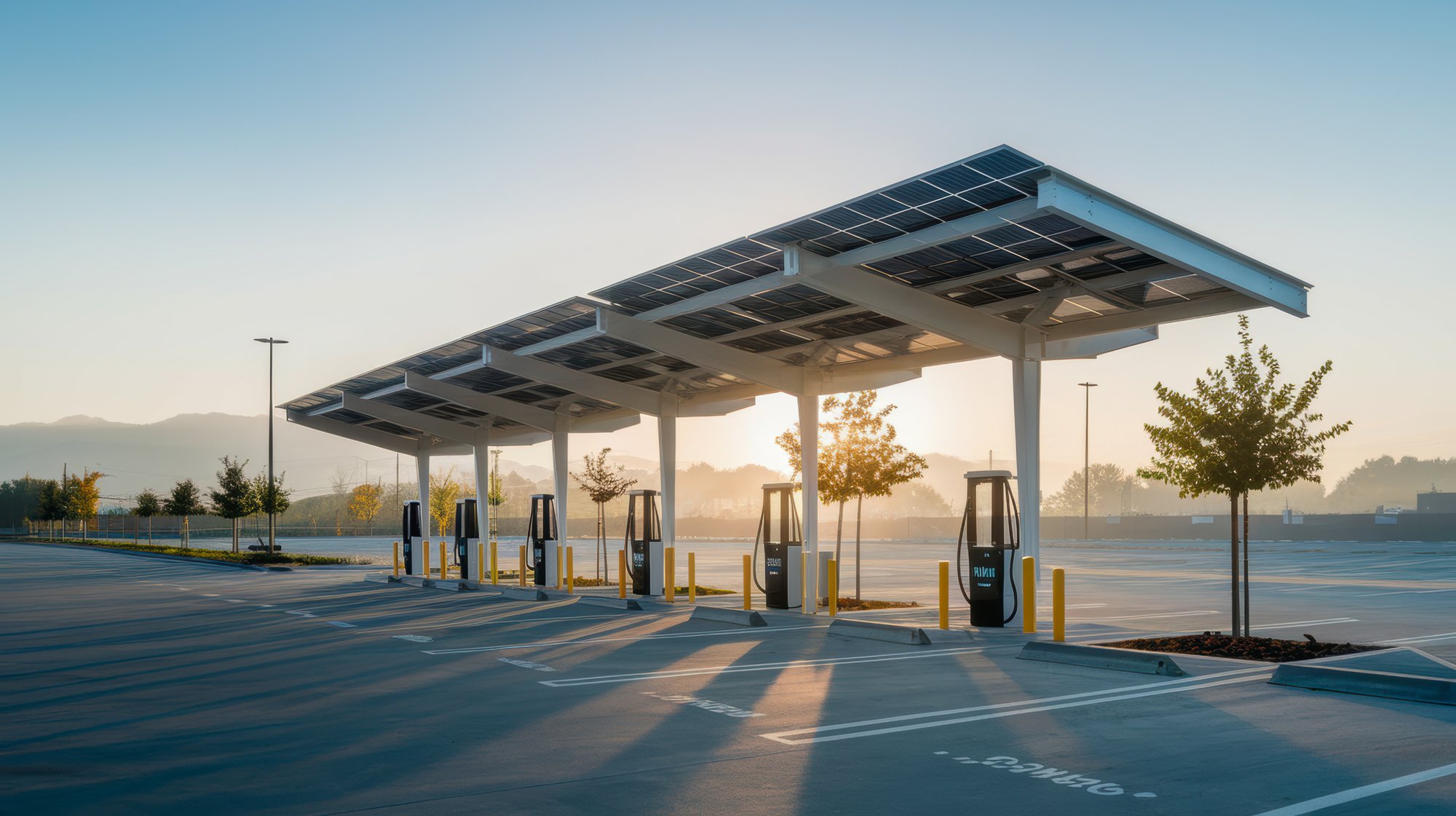EV Charging for Fleets
Businesses are constantly looking for ways to increase efficiency within their daily operations and switching to an all-electric vehicle fleet can contribute greatly to this effort. Fleet managers typically charge vehicles during non-working hours to ensure the vehicles are always topped off and ready for a full workday. Fleet drivers typically won’t experience range anxiety throughout the day thanks to long range EV models hitting the road. Fleet managers can also track usage and generate sustainability reports which can contribute to short- and long-term goals within the company.
Benefits of Fleet Charging
Reduce operating expenses and maintenance costs
Achieve sustainability goals
Report on Usage and Cost Savings
Take advantage of Tax Deductions and other Incentives
Fleet Electrification
Managing a fleet isn’t easy; but it’s much easier when incorporating Electric Fleet Vehicles with networked charging. Networked chargers provide fleet managers with complete control over their vehicles and how they are managed via one simple dashboard to manage each station. The ability to track energy usage via easy-to-read data reports allows managers to see real numbers behind sustainability measurements. These reports also include information such as the amount of fuel savings and how much greenhouse gas emissions have been avoided.
.jpg)

Proper power management is crucial for running an efficient fleet. Fleet managers can program charging to not only occur during non-working times, but also during the time of day that electricity costs are lowest. This will reduce daily electricity costs associated with charging the vehicles and ensures EVs will still be ready for a full day of driving.
Why networked charging?
- Allows you to manage all aspects of electric charging from one location
- Scheduled Charging, Power Management, and Utilization Reporting
- Unlimited Programming & Reporting
- Sustainability, Access Control, Sessions, Charge Status/Alerts, Driver Groups
- Unlimited Wireless Station Connectivity
- Allows station adjustment, monitoring and remote access by support or fleet manager, anytime. No building LAN or Wi-Fi needed
- 24/7/365 Driver Support
- Drivers can call Support anytime, ask questions, or walk them through using a charging station.
.jpg)

Level 2 or DC Fast?
For most commercial fleet applications, Level 2 charging stations are adequate, depending on your charging requirements, type of vehicles (battery size onboard) and your overall business operations.
Level 2 charging is viewed as a “top-off” model; enabling vehicles to return at the end of a shift, plug in and charge at a slower pace, often overnight.
Level 3 (DC Fast) charging reduces the time for a vehicle to charge and is often needed when "fast" charging for fleet vehicles is needed. Public transit vehicles, Electric Buses, Waste Management (Refuse Trucks), Shuttles, Transport (Cargo / Freight), Emergency Response and similar vehicles typically opt for Level 3 charging to decrease down-time and quick re-charge.
It is common for fleet organizations to install a mix of Level 2 and DC Fast Chargers to power their fleet operations.

- What is your fleet type?
- When is the vehicle operating?
- Does it have a set or variable route?
- How many miles per day?
- How are the vehicles assigned to drivers
- How are the vehicles and drivers being managed?
- Where is the maintenance performed?
- How and where is the vehicle garaged?
- How long will the vehicle need to charge?
- What is the proposed EV replacement rate?
- What type of data will the organization need to measure?
Many states offer incentives/rebates for building out EV charging infrastructure to support the adoption of electric fleet vehicles, with funding available to help businesses purchase electric vehicles as well. Most of these rebates require data reporting capability, which is why a networked fleet charging solution is necessary for many fleet applications. To see if your company is eligible for local/state incentives please contact us!
.png?width=75&height=69&name=Untitled%20design%20(13).png)